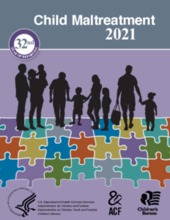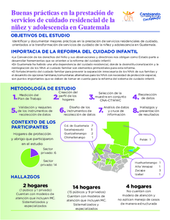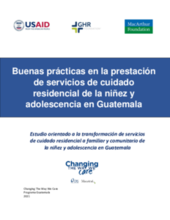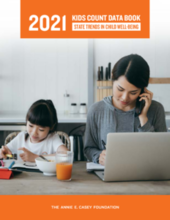This page contains documents and other resources related to children's care in the Americas. Browse resources by region, country, or category.
Displaying 211 - 220 of 1438
This study provides an exploration of foster child stress and behavioral health during and after Hurricane Irma.
Informed by systematic reviews of the English‐ and Latin American academic literature in Spanish and Portuguese and key informant interviews with international stakeholders, this paper fosters global dialogue with some Global South and Global North perspectives about the interconnections of children's rights.
This article combines insights from Beck’s individualization theory and Crenshaw’s intersectionality theory to enhance understandings of why youth transitioning out of the child welfare system experience risk of poor outcomes.
The authors of this study used two independent methods to estimate prevalence of sex trafficking victimization among with prior maltreatment and foster care placements in one state in the U.S.
Child Maltreatment 2021 is the latest edition of the annual Child Maltreatment report series. States provide the data for this report via the National Child Abuse and Neglect Data System (NCANDS). NCANDS was established as a voluntary, national data collection and analysis program to make available state child abuse and neglect information.
OBJETIVOS DEL ESTUDIO: Identificar y documentar mejores prácticas en la prestación de servicios residenciales de cuidado, orientados a la transformación de servicios de cuidado de la niñez y adolescencia en Guatemala.
Estudio orientado a la transformación de servicios de cuidado residencial a familiar y comunitario de la niñez y adolescencia en Guatemala.
Cambiando la Forma en que Cuidamos (o sus siglas en inglés, CTWWC) Guatemala realizó un estudio con el objetivo de identificar y documentar buenas prácticas en la prestación de servicios de cuidado residencial, con el objetivo de transformar los servicios de cuidado a la niñez en Guatemala.
This episode focuses on the current reality of reunification across the public child welfare system. Listeners will hear a conversation among child welfare professionals, members of the American Bar Association (ABA) Center on Children and the Law(opens in new window), the Children’s Bureau, and an alumnus of foster care.
The 32nd edition of the Annie E. Casey Foundation's KIDS COUNT® Data Book describes how children across the United States were faring before — and during — the coronavirus pandemic.





